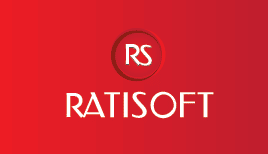Business Analytics
Business analytics, the backbone of modern management, is an indispensable part of the strategy of any thriving company. In today's world, where data is the new business currency, the ability to analyse it and use it to make decisions is crucial to achieving competitive advantage. W RATISOFT We understand these dynamics and offer a wide range of tools and analytical strategies for effective data processing, from simple analysis in MS Excel and Google Sheets, through advanced solutions in Power BI, to complex Business Intelligence systems. Our solutions are tailored to meet the needs of different industries and business sizes, allowing any organisation to find the right tools to optimise its business processes and maximise results.
What is Business Analytics?
Business analytics, defined as the process of collecting, processing and analysing business data, plays a key role in the strategic planning of any modern organisation. It involves using data to generate insights and knowledge that support decision-making and the discovery of new business opportunities. It enables companies to predict market trends, optimise processes, increase efficiency and improve customer relationships. The application of business analytics is versatile and spans industries ranging from finance to retail, health to manufacturing. In the financial sector, for example, analytics helps to identify patterns in customer behaviour and manage risk. In retail, business analytics is used to optimise the supply chain and personalise offers to customers. And in the health industry, it allows for better resource management and improved quality of care. In each of these industries, business analytics translates into tangible added value, enabling companies to not only survive, but thrive in an increasingly competitive business world.
Why is Business Data Crucial?
In the digital age, business data has become the foundation on which companies build their strategy and competitiveness. Their role in business decision-making cannot be overestimated, as they allow key decisions to be based on a solid, empirical basis, rather than intuition or conjecture. Data offers insights into customer behaviour, operational performance, market trends and many other aspects that are essential for successful business management.
Examples of how data analytics impacts business success are ubiquitous. In the retail industry, customer data analytics allows offers and marketing communications to be tailored to better meet consumer needs and preferences, resulting in increased sales and customer loyalty. In the manufacturing sector, operational data analytics can lead to the optimisation of production processes, reducing costs and increasing productivity. In finance, data analytics allows for better risk management and the identification of new investment opportunities.
Additionally, in a business environment that is rapidly changing and fraught with uncertainty, data allows for faster response to market changes and adaptation of strategies. Companies that use data effectively have the advantage of a deeper understanding of the market, enabling them to make informed decisions, minimise risk and maximise profits. In this way, data analytics becomes not only a tool to increase efficiency, but also a catalyst for innovation and business growth. At RATISOFT, we understand this dynamic and offer our clients the tools and support they need to transform data into valuable information that will help them succeed in their industry.
Overview of Analytical Tools
In the business world, analytical tools play a key role in transforming data into actionable knowledge. A variety of solutions are available on the market that vary in functionality, complexity and price, allowing companies to choose the tool that best suits their needs and capabilities.
At the outset, it is worth mentioning MS Excel, which is a basic but extremely powerful analytical tool. With a wide range of functions, from simple tables to advanced formulas, Excel is ideal for companies starting out in data analysis. Another popular tool is Power BI from Microsoft. This advanced business intelligence software allows you to create interactive reports and dashboards that provide deeper insights into your data. Power BI is particularly useful for companies that need more comprehensive data analysis and visualisation.
Choosing the right tool depends on several factors. First and foremost, consider the type and amount of data the company generates and wishes to analyse. For smaller companies with simpler analytical needs, tools such as Excel may be sufficient. On the other hand, larger organisations that need to analyse large data sets and require more advanced features may benefit from tools such as Power BI.
The skills of the team must also be considered. More advanced tools require more advanced analytical and technical skills. Therefore, it is important to assess the level of knowledge and experience of the employees who will be using these tools. In addition, the cost aspect is important - some tools are available for free or for a small fee, while others require a larger investment.
At RATISOFT, we focus on providing analytical solutions that are tailored to the specific needs and capabilities of each company. We offer support in the selection and implementation of appropriate analytical tools, ensuring that our solutions are not only effective, but also intuitive to use and effective in achieving business goals.
Business Intelligence in Practice
Business Intelligence (BI) technologies play a key role in the growth of companies, enabling them to transform large amounts of data into strategic information. The use of BI in practice enables a deeper understanding of the market, the identification of new business opportunities and the effective management of resources.
BI contributes to improved decision-making by providing access to timely and accurate data. Companies using BI are able to react faster to changing market conditions, predict customer behaviour and optimise their operations. BI tools, such as interactive dashboards and reports, allow data to be visualised, making it easier to analyse and interpret.
An example of the application of BI in practice can be seen in the case study of a company that took advantage of the technology available from RATISOFT. This company, operating in the e-commerce industry, was struggling with the problem of low conversion on its website. By implementing RATISOFT's BI tools, the company gained access to detailed data on user behaviour on its website. Analysis of this data allowed them to identify the key points at which customers were abandoning their purchases.
Based on the insights gained, this company optimised its website, making changes to the layout and shopping process. Additionally, using predictive analytics, the company was able to better tailor offers to the needs of specific customer segments. As a result of these measures, the company saw a significant increase in conversions and improved overall customer satisfaction.
This case demonstrates how the use of BI technology can bring real benefits to a business. At RATISOFT, we focus on providing personalised BI solutions that address the unique needs of our clients, helping them to realise the full potential of their data for business success.
How to Perform Effective Data Analysis?
Conducting effective data analysis is key to understanding and using information that can contribute to a company's growth and innovation. This process requires careful planning and best practice.
Defining the Analysis Objectives: The first step is to define what we want to achieve through data analysis. Is it to increase sales, improve operational efficiency or better understand customer needs? Clearly defined objectives will help you focus on the right data and analysis methods.
Data Collection and Preparation: Next, we collect the necessary data from various sources, such as databases, customer surveys or sales systems. It is important that the data is complete, reliable and up-to-date. Data cleaning, i.e. the removal of errors, missing values and duplicates, is also crucial at this stage.
Exploratory Analysis: Before deeper analysis, it is useful to carry out an initial exploration of the data. This allows you to understand the structure of the data, detect patterns and anomalies, which is helpful for further analysis.
Application of Analysis Techniques: Depending on the objective, we choose appropriate analysis methods, such as statistical analysis, predictive modelling or correlation analysis. The use of appropriate analytical tools, such as Power BI or advanced analysis tools, is key here.
Interpretation and Conclusion: the final step is to interpret the results of the analysis. It is important to understand what the data tells us about our company, market or customers, and what action we should take based on this information.
Implementing Results: Understanding the results is one thing, but it is also crucial to implement them effectively into the company's strategy, which may mean changes to products, services or business processes.
Guidance and Best Practice
Setting Realistic Objectives: Ensure that the objectives of the analysis are realistic and achievable.
Maintaining Data Quality: Focus on maintaining high data quality. Inaccurate data can lead to erroneous conclusions.
Using the Right Tools: Choose the analytical tools that best suit your needs and the skills of your team.
Learning from Mistakes: Data analysis is a continuous learning process. Don't be afraid to experiment and learn from mistakes.
At RATISOFT, we help our clients to perform effective data analysis, providing not only the right tools but also the knowledge and support to maximise the benefits of their business data.
Creating a Successful Business Strategy
Business analytics has a significant impact on the process of creating an effective business strategy. In today's fast-changing business world, where decisions need to be made quickly and based on solid data, analytics is becoming an essential tool in business planning and strategy. By integrating data and analytics into day-to-day management, organisations can better understand their business environment, anticipate market changes and respond quickly to new challenges.
Understanding the Market and Customers: Business analytics helps to provide a deeper understanding of the market and customer needs. By analysing demographic, behavioural and transactional data, companies can create more targeted and effective marketing and sales strategies.
Optimising Operations: Analytics identifies areas for optimisation in business operations. Companies can use data to improve process efficiency, reduce costs and increase productivity.
Innovation and Product Development: Data can identify new market opportunities and help develop innovative products or services. Analysis of trends and customer needs can lead to the creation of offerings that better meet current market requirements.
Prediction and Risk Management: Business analytics enables better prediction of future trends and potential risks. Companies can use predictive models to anticipate market changes to better manage risks and avoid potential problems.
Making Informed Decisions: Finally, integrating business analytics into day-to-day management enables more informed decision-making. Instead of relying on intuition, companies can use data to make decisions based on facts and analysis.
Summary
In summary, business analytics is an invaluable resource for any company seeking to become more efficient, innovative and competitive. Key benefits of business analytics include the ability to make more informed decisions, optimise processes, better understand customer needs and identify new market opportunities.
Good decision-making: Business analytics enables companies to rely on facts and data, rather than just intuition, making decisions more precise and effective.
Process Optimisation: By analysing operational data, companies can find ways to improve efficiency, reduce costs and increase productivity.
Understanding and Meeting Customer Needs: Analysing customer data helps to tailor products and services to their expectations, which increases customer satisfaction and loyalty.
Identifying New Market Opportunities: Business analytics allows early detection of market trends and changes in customer preferences, enabling rapid response and exploitation of new opportunities.
At RATISOFT, we believe that any company, regardless of size, can benefit from the power of business analytics. We provide end-to-end solutions, from simple tools such as MS Excel and Google Sheets, to sophisticated systems such as Power BI, which help our clients transform data into valuable insights and strategic information. We invite you to take advantage of our business analytics services to discover how we can help your business reach its full potential. Contact us today to find out more about our solutions and how they can contribute to the growth and success of your business.
Request a free quote
Discover potential your brand and increase your visibility on the internet today!
JOIN OUR CUSTOMERS





JOIN OUR CUSTOMERS






